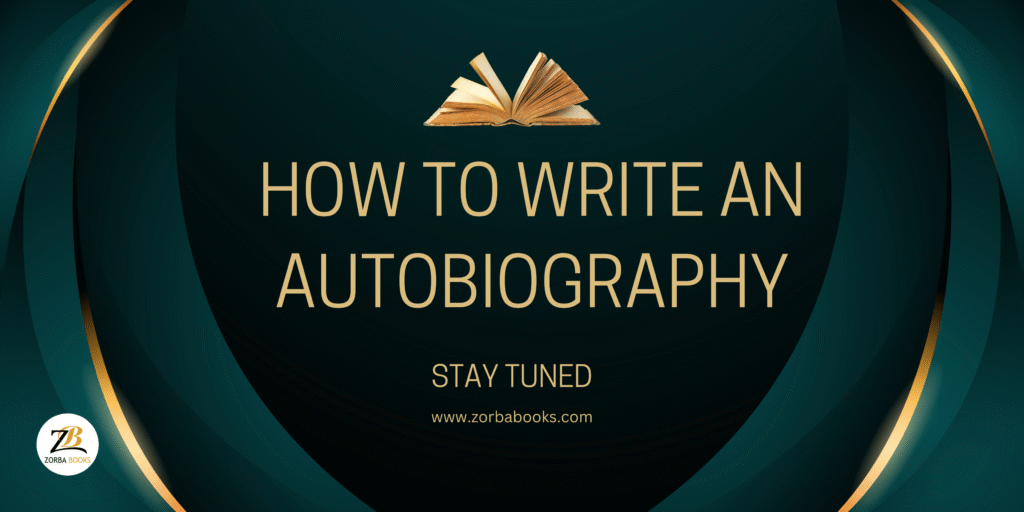
Writing an autobiography is an opportunity to encapsulate your experiences, lessons, and personal growth for now and eternity and inspire others through your journey. Whether you are an aspiring writer or an established author eager to share your life story, crafting an engaging and relatable autobiography requires thoughtful planning and execution. It helps first-time authors to know the autobiography format before writing a life story.
1. How Can I Make My Life Story Engaging and Relatable?
Authenticity is the key to engaging readers. They want to feel your emotions, visualize your struggles, and celebrate your triumphs. Start your autobiography with a captivating hook. Open with a memorable moment, a challenge, or an intriguing question that immediately grabs your reader’s attention and sets the tone for your story.
- Use storytelling techniques: Create vivid imagery, engage emotions, and build suspense to keep your audience invested.
- Relatable themes: Discuss themes like perseverance, love, ambition, identity, or family that resonate universally.
- Remember, honesty is key. Share your successes and failures, as these imperfections make your story compelling and relatable to your readers.
Personal autobiography example: Dr. APJ Abdul Kalam’s Wings of Fire inspires readers with its account of his humble beginnings, struggles, and achievements.
In his autobiography “The Adventurous Life of a Common Man,” Om P Garg, an industrialist, engages the reader in his rags-to-riches story and by creating various hooks throughout the book.
Autobiography writing tips: Your genuine storytelling will keep readers connected.
2. What Are the Key Elements in an Autobiography Outline?
This autobiography format simplifies the writing process for an author.
- Introduction: Set the stage by highlighting why your story matters.
- Early life: Describe childhood influences and formative experiences.
- Challenges and turning points: Major obstacles, pivotal moments, and lessons learned.
- Career and achievements: Significant milestones, professional accomplishments, and personal growth.
- Reflections and legacy: Insights gained and the impact of your journey.
Autobiography writing tips: A well-structured autobiography outline includes essential components that guide readers smoothly through your life story:
Format for “How to Write an Autobiography?”
| Section | Description | Example from Indian Writers |
| Introduction | Establishes the reason for writing the autobiography and its significance | An Autobiography – Jawaharlal Nehru reflects on his life as a political leader |
| Early Life | Childhood, formative influences, personal background | Playing It My Way – Sachin Tendulkar shares his early cricketing dreams. |
| Challenges & Turning Points | Struggles, significant events that shaped character | I Am Malala – Malala Yousafzai (not Indian but resonates globally) discusses challenges in education. |
| Career & Achievements | Successes, contributions, life’s work | My Experiments With Truth – Mahatma Gandhi details his principles and leadership journey |
| Reflections & Legacy | Life lessons, message to future generations | Wings of Fire – Dr. APJ Abdul Kalam shares wisdom on perseverance and innovation. |
3. How Do I Balance Personal Truth With Sensitivity to Others?
Autobiographies often involve the experiences of family, friends, and colleagues. This can often become a sticky point and lead to unhappiness once the autobiography is published. Here are a few steps one can help you prevent from hurting sensibilities of others while writing a life story.
- Consider perspectives: Acknowledge how your story affects others involved.
- Obtain consent: If revealing personal details, get permission where possible.
- Use discretion: Avoid unnecessary conflicts or criticism; focus on personal insights.
- Offer balanced views: Present multiple perspectives when addressing controversial matters.
Autobiography example: The Truth, Love & a Little Malice by Khushwant Singh candidly discusses personal life but ensures a thoughtful approach in sensitive areas.
In the bestselling book A Fistful of My Sky: Memories of Jawhar, author the well-known DR. ANAND GOKANI, MD, tackles sensitive subjects with great care while skillfully recounting his experiences.
Autobiography writing tips: Being honest while respecting others’ privacy requires careful navigation.
4. Should I Self-Publish or Approach Traditional Publishers?
When deciding on publishing the autobiography both publishing options have advantages, and your choice depends on your goals.
Traditional Publishing:
✅ Offers wider reach and credibility
✅ Professional editing and marketing support
❌ Longer approval process
❌ Requires a compelling pitch to secure a publisher
Self-Publishing:
✅ Complete control over content and timeline
✅ Higher royalty earnings per sale
❌ Requires personal effort in marketing and distribution
❌ Limited access to mainstream bookstores
Example: Amish Tripathi’s Shiva Trilogy was initially self-published before gaining massive success. His journey showcases the potential of self-publishing.
The Benefit of Writing an Autobiography
Many writers find a profound sense of fulfillment and legacy in sharing their personal narratives. By documenting your experiences, you ensure they are not lost to time, empowering yourself and inspiring others.
- Preserving history: Documenting your experiences ensures they are not lost to time.
- Inspiring readers: Your journey can motivate others to overcome obstacles.
- Personal healing: Writing allows for deep reflection and emotional catharsis.
- Establishing authority: A published autobiography can position you as a thought leader.
Working with established platforms like Zorba Books can provide writers looking to publish their stories with the guidance and expertise they need to bring their autobiography to life, ensuring they feel supported throughout the process.
Are you ready to turn your life story into an inspiring book? Start by drafting an autobiography outline today! If you need autobiography writing tips, explore examples of personal autobiography to refine your approach. Your story deserves to be told—embrace the journey of writing a life story now!
This blog provides a structured and engaging guide on how to write an autobiography, ensuring that writers craft an impactful and memorable life story
Helpful Reading:
Write a Story that Captures the Reader’s Imagination
Self-Publishing vs. Traditional Publishing: Which is More Profitable?
Pingback: 10 Unique Biographies That You Need to Read - ZorbaBooks
Pingback: How To Start Writing a Book that Sells I Zorba Books